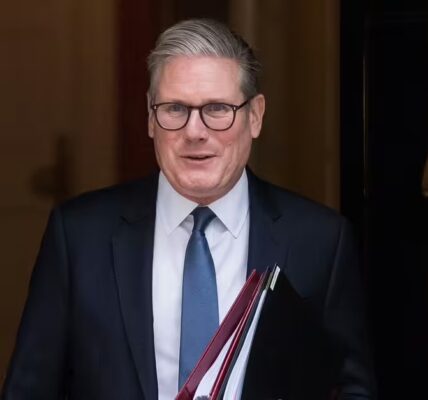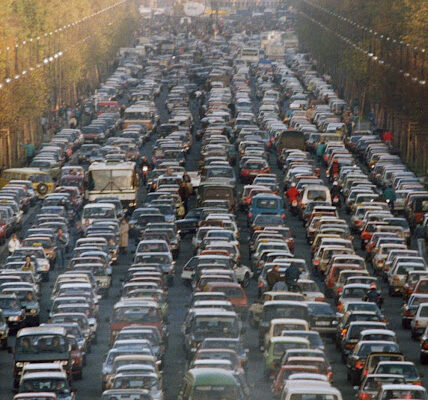UK foreign secretary regrets ‘return to protectionism’ and says Britons will be concerned about impact on finances

Donald Trump has claimed that the UK is “very happy” with tariffs imposed on the country as part of his shock upending of global trade, but the British foreign secretary, David Lammy, said he regretted the “return to protectionism”.
Wielding a chart in the White House Rose Garden, the US president revealed on Wednesday that the UK would be hit with 10% so-called “reciprocal” tariffs as part of a sweeping drive on all countries.
Cambodia, Vietnam and Thailand were struck with tariffs of 49%, 46% and 36%, while the EU faces a levy of 20% for all the goods it exports to the US.
Lammy said on Friday that Britons would be “very concerned” about how tariffs affect their finances.
“We are a nation that believes in open trade, and I regret the return to protectionism in the United States, something that we’ve not seen for nearly a century,” the foreign secretary told reporters.
“As you know, we are consulting with business and industry. At this time, we are engaged in discussions with the United States to strike an economic agreement and an economic deal.
“And of course, we have been absolutely clear that all options are on the table as we ensure the national interests of the British people, who will be very concerned at this time about how this affects the bottom line for them and their economic welfare.
“We will put their national interest first, and it’s in their national interests to be negotiating with the United States an economic agreement at this time, but keeping all options on the table.”
Late on Thursday, Trump was characteristically defiant. Onboard Air Force One, he insisted that Keir Starmer was “very happy” about Britain’s tariff treatment.
“We have a very good dialogue. I think he was very happy about how we treated them with tariffs,” the US president said.
Trump had earlier used a medical analogy to suggest the US would ultimately emerge stronger from a potential global trade war. Taking to his social media platform Truth Social, he said: “The operation is over. The patient lived, and is healing. The prognosis is that the patient will be far stronger, bigger, better and more resilient than ever before.”
Investors delivered a devastating early verdict on the unprecedented move as stock markets tumbling around the world; in the US, the Dow Jones index suffered its worst day since 2020, falling almost 4%, in the UK the FTSE 100 fell to a three-month low and the Nikkei index in Tokyo lost 2.6% in early trading on Friday.
Kristalina Georgieva, the managing director of the International Monetary Fund said that the tariffs “clearly represent a significant risk to the global outlook at a time of sluggish growth”, while multiple analysts updated their forecasts to include a recession in the US later this year.
Despite the UK being assigned the lowest tariff rate by Trump, economists stressed that Britain still faced a “significant impact”.
Experts predicted that UK economic growth – already expected to be just 1% this year – could be up to 0.5 percentage points lower over coming years as a result of the tariffs.
Thomas Pugh, an economist at the business advisory firm RSM UK, said he believed the tariffs would be “not far off” wiping out Rachel Reeves’s fiscal headroom by the time she announces her second budget in the autumn.
Last week, the Office for Budget Responsibility warned that the chancellor’s headroom against her debt target would be at serious risk if tariffs were imposed.
If this proves to be correct, Reeves will face the prospect of imposing more spending cuts or tax rises if she does not change her fiscal rules.


